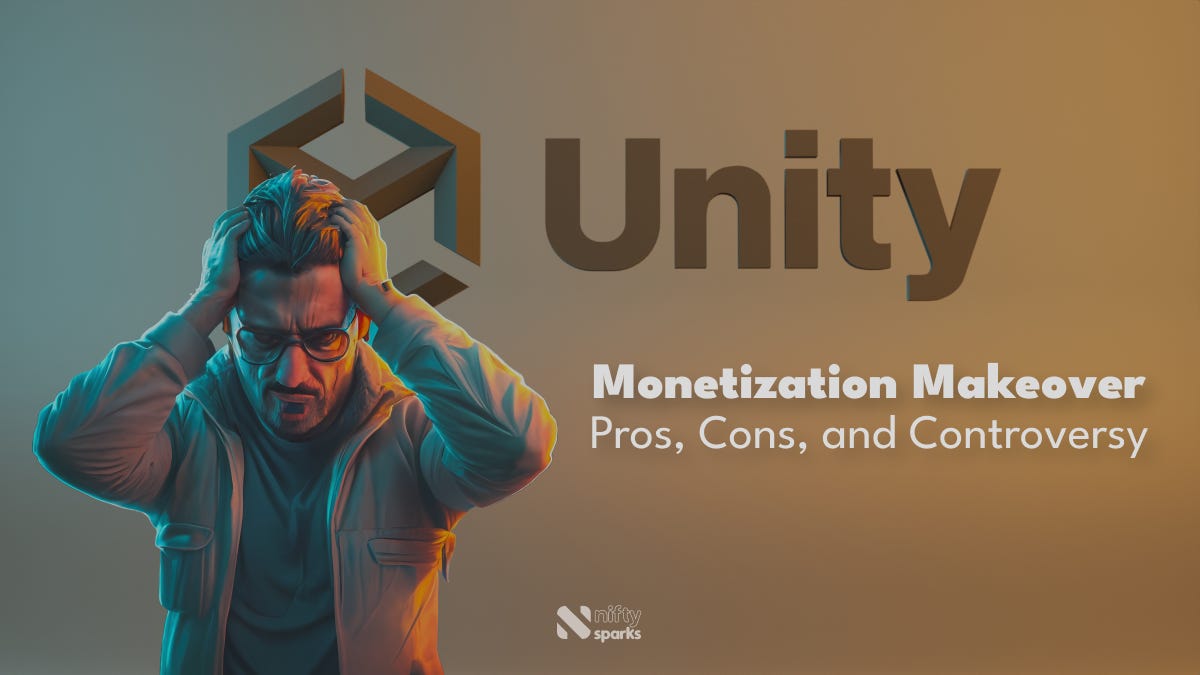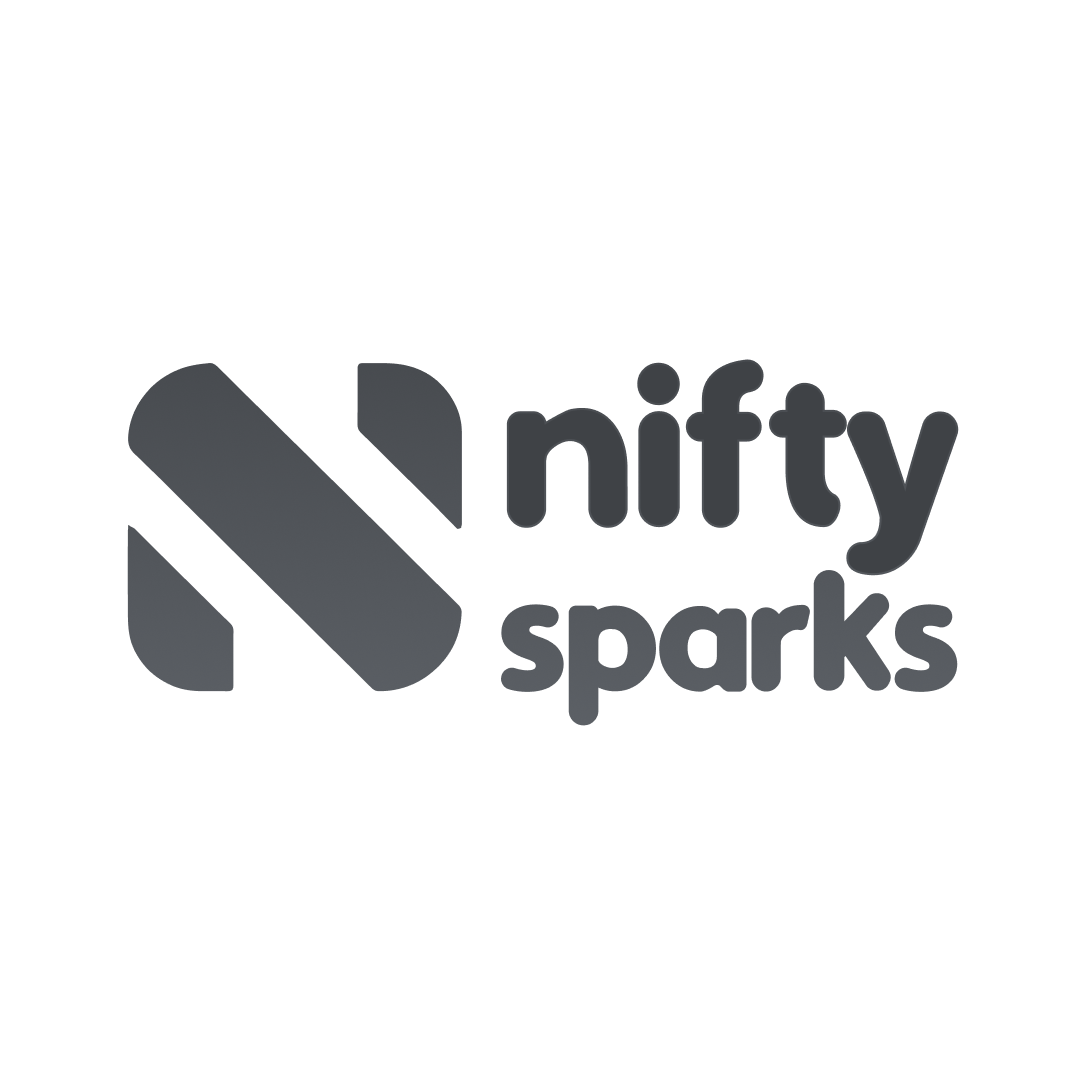Unity's Monetization Uproar: What It Means for the Gaming Community
The video game industry was rocked this week by Unity's shocking new monetization plans.
The popular game engine, used by countless indie developers, announced on Tuesday that starting January 1st, 2024 they will begin charging studios per game download. This seismic shift in how Unity operates has sparked confusion and outrage across the gaming community.
In the blog post, Unity justified the change by saying the fees will be tied to "each time a qualifying game is downloaded" since that also installs the Unity runtime software. They claim this allows creators to retain more revenue from active players rather than sharing a percentage.
How the New Monetization System Works:
Games that meet specific revenue and download criteria established by Unity's subscription tiers will trigger these fees. For instance, a game created using Unity's Personal plan, once it surpasses $200,000 in earnings and accumulates more than 200,000 downloads, will incur a charge of 20 cents per download in the United States. Games in emerging markets like India or China will face a charge of 10 cents per download.
Unity shared a handy table breaking down the labyrinthine structure, with subscription levels on one axis and geography on the other. But the core takeaway is simple - more downloads means more fees, regardless of actual profitability or revenue per user.
Effective Date and Impact on Existing Games:
This seismic shift takes effect at the start of 2024, grandfathering in existing games before that date. However, any new downloads or installs after January 1st rack up charges for developers. For example, if you have a game with 200K historical downloads but only sell one copy in January 2024, you pay 20 cents to Unity that month.
Mixed Reactions from Developers:
Indie developers reacted with apprehension and anger to the announced changes. Many feel the install-based fees unfairly punish smaller studios working on tighter budgets. Particularly vulnerable are solo developers, mobile games, and projects with limited monetization.
The sentiment of dissatisfaction extends to seasoned game developers as well. Matt Wood, who has worked on renowned games such as Half-Life 2, Portal 2, CSGO, and Left 4 Dead, expressed his discontent with Unity’s new pricing model in a tweet:
“@matttwood: Yeah, this will absolutely be the last Unity game from me. 100%. 🫤”
While the changes have sparked concern among certain developers, it’s important to note that there’s another side to the coin. Some in the industry are welcoming Unity’s new pricing structure, seeing it as a potential catalyst for positive change in the game development ecosystem.
Take Sercan Altundas, SDK & Integrations Team Leader at Ready Player Me, for example. He expressed his support for the changes in a recent post:
In short, Sercan believes that Unity’s new pricing could encourage developers to explore other engines like Godot and Unreal Engine, fostering diversity and competition in the industry. He also sees potential for a reduction in low-quality mobile games and an increase in premium titles.
As with any significant change, opinions will vary widely across the community. It’s crucial to consider all perspectives and understand how these changes might impact different stakeholders in unique ways.
Challenges and Concerns:
The charges apply per download without considering why users might install a game multiple times. Pirating, demos, installing on multiple devices, subscribers trying games on services like Xbox Game Pass - all of these trigger fees after Unity's thresholds are met.
Some developers worried Unity's model creates perverse incentives for griefers to repeatedly install and uninstall games to drive up charges. Unity has promised fraud detection tools, but doubts linger about how abuse can be prevented.
In a series of clarifying tweets, Unity confirmed some other tricky scenarios:
Game Pass-style subscription services won't charge the developers themselves but instead bill Microsoft and the like.
Demos are excluded from fees unless they bundle in full games, such as early access titles.
Despite earlier confusion, Unity will only charge for a game's first-ever install per device. Reinstalling or installing on a new device triggers additional fees.
Even with the clarifications, anger persists over what many see as a tone-deaf money grab. Unity already charges monthly or yearly subscriptions for developers to use its tools. Now, studios feel trapped into paying per download atop those existing fees.
There is also worry these install-based charges could hurt digital preservation efforts by pressuring developers to delist older games. Privacy concerns abound regarding Unity's planned install monitoring tools.
Across social media, indie studios expressed frustration and betrayal over the new monetization model. Many called it an anti-developer cash grab that disproportionately affects smaller teams with lower profit margins. Some have lost faith entirely in Unity as an ethical partner.
While the details are still being sorted out, one thing is clear: Unity’s relationship with indie developers and studios has been fractured by this decision. The coming months will reveal whether unity can be restored, or if an exodus away from the once-beloved engine is imminent.
UPDATE (September 13th):
Here are the key points:
The price increase is targeted and will not affect more than 90% of Unity’s customers. It will primarily impact those who have achieved substantial scale in downloads and revenue, meeting both Unity’s install and revenue thresholds.
Once you meet the install and revenue thresholds, you only pay the runtime fee on new installs after Jan 1, 2024. The fee is not perpetual and is only paid once for an install.
Starting from Jan 1, 2024, Unity will only count net new installs on any device, assuming the install and revenue thresholds are met. Developers will not be responsible for paying a runtime fee on re-installs, fraudulent installs, trials, partial play demos, automation installs (devops), web and streaming games, or charity-related installs.
For more detailed information, Unity has updated their blog and FAQ resources.
Blog: https://on.unity.com/3ZiIwlB
FAQ: https://on.unity.com/44NMZ0R
UPDATE (September 14th):
Unity Technologies has temporarily closed several of its U.S. offices due to a “potential threat”.
The threat, reportedly made by an employee via social media, led to the shutdown of offices in Austin, Texas, and San Francisco.
The closures occurred just as Unity CEO John Riccitiello (@johnriccitiello) was scheduled to address staff at a company-wide meeting. The situation is currently under investigation by local law enforcement.
September 16th Related Update:
UPDATE (September 18th):
After the overwhelming backlash, Unity posted a statement walking back their controversial pay-per-download fees. The company apologized for the “confusion and angst” caused by the new monetization model announced earlier this week.
Unity said they are listening to critical feedback from developers, partners, customers, and its own team members regarding the plan. While brief, they promised that they will share specifics on policy changes in the next couple of days.
For now, indie studios and developers anxiously await details on how Unity aims to modify the universally panned program.
UPDATE (September 22nd):
In an open letter, Unity’s leadership acknowledged the concerns raised by the community about their new Runtime Fee policy. Marc Whitten, the leader of Unity Create, which includes the Unity engine and editor teams, apologized for not incorporating more community feedback before announcing the new policy.
Following this open letter, Unity has introduced several changes to their Runtime Fee policy. Here are the key points:
The new Unity Runtime Fee will only apply to Unity Pro and Unity Enterprise. If you’re on the Unity Personal or Plus plans, the Runtime Fee does not apply.
No games created with any currently supported Unity versions will be impacted. Only those created with or upgraded to the Long Term Support (LTS) version releasing in 2024 (or later), currently referred to as the 2023 LTS will be impacted.
For those games, the fee is only applicable after a game has crossed two thresholds: $1,000,000 (USD) in gross revenue (trailing 12 months) AND 1,000,000 initial engagements. After crossing these two thresholds, you can choose to pay the Runtime Fee, either based on monthly initial engagements or 2.5% of your game’s monthly gross revenue. Ultimately, you will be charged the lesser of the two.
Key updates include:
The Unity Personal plan will remain free and there will be no Runtime Fees for games built with the plan. The annual revenue and funding limit will be increased from $100,000 (USD) to $200,000 (USD), and the requirement to use the Made with Unity splash screen will be removed (starting with the LTS version releasing in 2024, currently referred to as the 2023 LTS, or later).
The Runtime Fee does not apply to any games created with any currently supported Unity versions. It only applies to games created with or upgraded to the LTS version releasing in 2024 (currently referred to as the 2023 LTS) or later.
On a monthly basis, you have a choice of the lesser of 2.5% revenue share or the calculated amount based on unique initial engagements. Both your initial engagements and your revenue are self-reported from data you already have available. You will always be billed the lesser amount.
For more detailed information, please refer to Unity’s open letter and their updated Runtime Fee policy.
As this situation continues to unfold, we will be here to bring you the latest updates on Unity’s new pricing structure and its impact on the game development community. We understand that these changes have sparked a wide range of reactions, and we’re committed to providing balanced coverage that reflects the diverse perspectives within our industry.
If you found this article helpful and want to stay informed about this topic and more, we invite you to join our newsletter from the link below.












